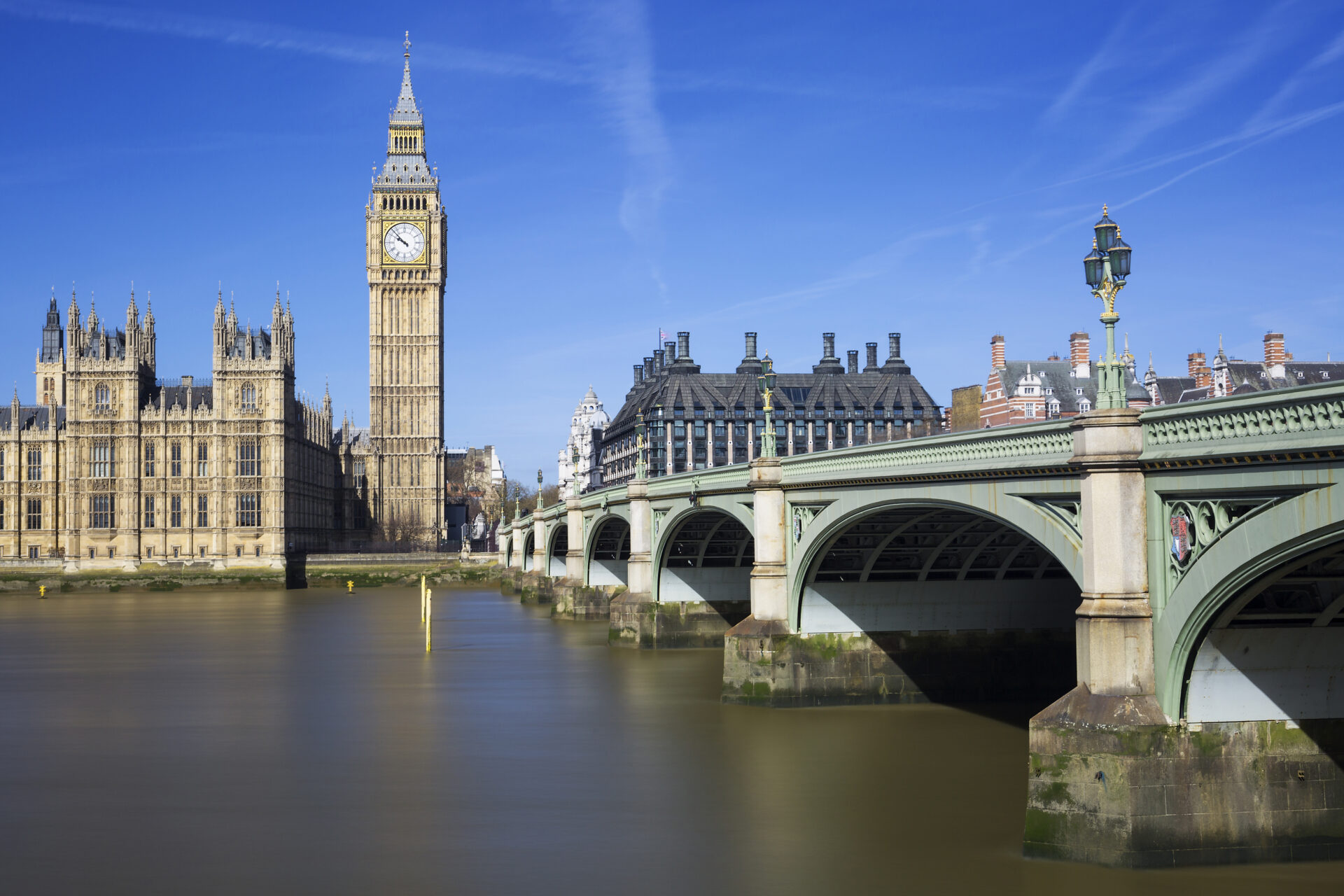Pursuing a Master of Arts (MA) degree can be a transformative step for aspiring business professionals. It provides advanced knowledge and specialized skills that can significantly enhance career prospects. With its rich cultural heritage and world-renowned educational institutions, Japan offers unique advantages for obtaining an MA degree. Known for its high academic standards and innovative research facilities, Japan has numerous universities that rank among the top globally.
Table of Contents

Which country do you want to study in?
Do you have a valid passport?
When do you want to study abroad?
What's your preferred program?
What's your highest level of education?
What is your IELTS/PTE/Duolingo Status?
How Leap will help you
Personalised University Shortlist
Express Applications with Quicker Admits
End-to-End Application Support
For instance, universities like the University of Tokyo and Kyoto University are prestigious and provide a vibrant academic environment that fosters creativity and critical thinking. Japan's commitment to education is evident in its investment in higher education, making it an attractive destination for international students.
Here’s the breakdown of key highlights for MA in Japan
| Key Points | Details |
|---|---|
| Number of Universities | 20+ |
| Top Specializations | Business Administration, International Relations, Cultural Studies, Economics |
| Top Undergraduate Courses | Business Studies, Economics, Sociology, Cultural Studies |
| Scholarships | MEXT Scholarship, JASSO Scholarship, University-specific scholarships |
| Course Duration | 2 years |
| English Language Proficiency | IELTS & TOEFL required |
| Intakes | Fall, Spring |
| Cost of Study | INR 5,00,000 - INR 15,00,000 per year |
| Cost of Living | INR 8,00,000 - INR 12,00,000 per year |
| Top Universities | University of Tokyo Kyoto University Waseda University |
| Top Professions | Management Consultant, Cultural Advisor, International Relations Specialist |
| Standardised Exams | GRE (varies by program) |
| Average Salary | INR 20,00,000 - INR 35,00,000 per year |
Why study MA in Japan?
Japan offers a unique blend of advanced education, cultural richness, and promising career prospects, making it an ideal destination for pursuing a Master of Arts (MA) degree.
Pursuing an MA in Japan provides a top-tier education and opens doors to many cultural and professional opportunities. Through academic excellence, industry connections, or cultural experiences, Japan offers MA students a comprehensive and enriching environment.
Here are some compelling reasons to choose Japan for your MA studies:
1. World-Class Education System
Japan is home to numerous universities globally recognised for their excellence in education and research. For example, the University of Tokyo and Kyoto University consistently rank among the top 100 universities worldwide. These institutions offer MA programs to foster critical thinking, innovation, and academic excellence.
2. Diverse Specializations
Japanese universities offer various MA specialisations, including Business Administration, International Relations, Cultural Studies, and Economics. These programs are tailored to meet the needs of various industries and provide students with the skills and knowledge required to excel in their chosen fields. For instance, Waseda University is renowned for its strong focus on international studies and cultural programs.
3. Industry Integration and Career Prospects
Japan is a global leader in various industries, such as technology, automotive, and finance. Studying in Japan allows students to connect with these industries through internships, research projects, and networking events. Many universities have partnerships with leading companies, enhancing the career prospects for graduates. For example, the MA program at Keio University includes industry projects that prepare students for roles in top firms like Toyota and Sony.
4. Cultural Immersion
Japan’s rich cultural heritage offers a unique experience for international students. Living in Japan allows students to immerse themselves in a culture that values tradition, respect, and innovation. This cultural experience can be invaluable for personal growth and broadening one’s perspective. Festivals, traditional tea ceremonies, and visits to historical sites deepen students' understanding of Japanese culture.
5. High Quality of Life
Japan is known for its high standard of living, safety, and cleanliness. Cities like Tokyo and Kyoto perfectly blend modernity and tradition, providing a conducive study and personal development environment. The efficient public transportation system, healthcare facilities, and overall quality of life make Japan an attractive destination for international students.
6. Scholarship Opportunities
Japan offers various scholarships to international students, making education more accessible. Scholarships such as the MEXT Scholarship and JASSO Scholarship provide financial support for tuition and living expenses, allowing students to focus on their studies without financial burden.
7. Post-Graduation Opportunities
Graduates with an MA degree from a Japanese university are highly regarded in the job market. The skills and knowledge gained from a Japanese education are recognised globally, enhancing employability. Moreover, Japan’s economy offers numerous opportunities for skilled professionals, particularly in technology, business, and cultural industries.
What are the Top Ten Universities for MA in Japan?
Japan is renowned for its exceptional educational institutions, which offer a wide array of Master of Arts (MA) programs. These universities are celebrated for their rigorous academic standards, cutting-edge research, and rich cultural experiences.
These universities provide excellent education and research opportunities and offer rich cultural experiences, making Japan a desirable destination for pursuing an MA degree.
Here is a look at the top ten universities in Japan offering outstanding MA programs:
| University | QS World Ranking 2025 | Tuition Fees (Estimated Annual Cost) |
|---|---|---|
| University of Tokyo | #32 | INR 3,25,000 |
| Kyoto University | #50 | INR 3,25,000 |
| Osaka University | #86 | INR 3,25,000 |
| Tokyo Institute of Technology | #84 | INR 3,25,000 |
| Nagoya University | #152 | INR 3,25,000 |
| Tohoku University | #107 | INR 3,25,000 |
| Kyushu University | #167 | INR 3,25,000 |
| Hokkaido University | #173 | / INR 3,25,000 |
| Waseda University | #181 | INR 6,70,000 |
| Keio University | #188 | INR 6,70,000 |
What are the Top MA Specialisations for MA in Japan?
Japan offers a diverse range of Master of Arts (MA) specialisations that cater to various academic interests and career aspirations. Below are some of the most popular MA specialisations offered in Japan:
1. MA in Japanese Studies
- Focus: This program delves into Japanese culture, language, literature, and history.
- Courses: Japanese Literature, Modern Japanese History, Japanese Society, and Japanese Language Proficiency.
- Career Paths: Graduates can pursue careers in academia, translation, cultural consultancy, and international relations.
2. MA in International Relations
- Focus: This specialisation covers global politics, diplomacy, international law, and economic relations.
- Courses: International Politics, Global Security, International Economics, and Diplomatic History.
- Career Paths: Careers in government agencies, international organisations, NGOs, and multinational corporations.
3. MA in Economics
- Focus: The program focuses on economic theories, quantitative methods, and policy analysis.
- Courses: Microeconomics, Macroeconomics, Econometrics, and International Trade.
- Career Paths: Economists, financial analysts, policy advisors, and academic researchers.
4. MA in Cultural Studies
- Focus: This program explores the cultural phenomena, media, and the impact of globalisation on cultures.
- Courses: Cultural Theory, Media Studies, Globalization and Culture, and Visual Culture.
- Career Paths: Media analysts, cultural advisors, marketing professionals, and academic researchers.
5. MA in Philosophy
- Focus: The specialisation covers major philosophical traditions and contemporary philosophical issues.
- Courses: Ethics, Metaphysics, Epistemology, and Philosophy of Science.
- Career Paths: Academic careers, ethics consultancy, and research positions.
6. MA in Sociology
- Focus: This program examines social behaviour, institutions, inequality and social change.
- Courses: Social Theory, Research Methods, Sociology of Education, and Urban Sociology.
- Career Paths: Social researchers, policy analysts, community developers, and sociologists.
Course Curriculum of MA in Japan
The structure and curriculum of MA programs in Japan are designed to provide both depth and breadth of knowledge in the chosen field of study. Here is an overview of the typical curriculum components:
Core Courses
- Core courses are mandatory and cover the foundational aspects of the chosen specialisation. For instance, an MA in Economics would include core courses in Microeconomics, Macroeconomics, and Econometrics.
Electives
- Electives allow students to tailor their studies to their interests and career goals. For example, a student in Japanese Studies might choose electives in Traditional Japanese Arts or Modern Japanese Literature.
Internship Opportunities
- Many MA programs incorporate internships to provide practical experience. Depending on the specialisation, these internships can be in research institutes, government agencies, international organisations, or private sector companies.
Unique Program Elements
- Some unique elements of MA programs in Japan include fieldwork, study abroad options, and collaborative projects with industry partners. For example, a Cultural Studies program might offer fieldwork in different cultural settings within Japan.
These specialisations and structured curricula make MA programs in Japan highly appealing to students seeking comprehensive education and diverse career opportunities.
Explore all countries
What are some of the top UG Courses for MA in Japan?
Pursuing a Master of Arts (MA) degree in Japan can be highly rewarding, and having a strong undergraduate background is crucial for admission into these programs. Here are some recommended undergraduate backgrounds and specific majors that provide a solid foundation for pursuing an MA degree in Japan:
1. Japanese Studies
- Recommended Background: Bachelor’s degree in Japanese Studies, Asian Studies, or a related field.
- Beneficial Areas of Study: Japanese language, Japanese history, East Asian culture, and literature.
2. International Relations
- Recommended Background: Bachelor’s degree in Political Science, International Relations, or Global Studies.
- Beneficial Areas of Study: International politics, diplomacy, global security, and international law.
3. Economics
- Recommended Background: Bachelor’s degree in Economics, Finance, or Business Administration.
- Beneficial Areas of Study: Microeconomics, macroeconomics, statistics, and econometrics.
4. Cultural Studies
- Recommended Background: Bachelor’s degree in Cultural Studies, Anthropology, or Sociology.
- Beneficial Areas of Study: Media studies, cultural theory, globalisation, and visual culture.
5. Philosophy
- Recommended Background: Bachelor’s degree in Philosophy, Humanities, or Religious Studies.
- Beneficial Areas of Study: Ethics, metaphysics, epistemology, and logic.
6. Sociology
- Recommended Background: Bachelor’s degree in Sociology, Social Work, or Psychology.
- Beneficial Areas of Study: Social theory, research methods, urban sociology, and social policy.
7. Linguistics
- Recommended Background: Bachelor’s degree in Linguistics, Language Studies, or English.
- Beneficial Areas of Study: Syntax, semantics, phonetics, and applied linguistics.
8. Media and Communication
- Recommended Background: Bachelor’s degree in Media Studies, Communication, or Journalism.
- Beneficial Areas of Study: Media theory, digital communication, journalism ethics, and public relations.
9. History
- Recommended Background: Bachelor’s degree in History, Archaeology, or Heritage Studies.
- Beneficial Areas of Study: World history, historiography, ancient civilisations, and historical research methods.
10. Art and Design
- Recommended Background: Bachelor’s degree in Fine Arts, Art History, or Design.
- Beneficial Areas of Study: Art theory, visual arts, design principles, and art history.
A relevant undergraduate degree strengthens your application and ensures you have the necessary knowledge and skills to excel in your chosen MA program in Japan. Each of these backgrounds provides a unique perspective and set of skills that can greatly enhance your graduate studies and future career prospects.
What are the Admission Requirements for MA in Japan?
Applying for a Master of Arts (MA) program in Japan involves a comprehensive process designed to identify and select the most qualified and dedicated students. To ensure a smooth application experience, prospective students should be well-informed about the various admission requirements. These include academic qualifications, essential documents, language proficiency, and visa processes. Understanding these requirements can help applicants prepare effectively and enhance their chances of securing a place in their desired program in Japan.
General Requirements
To apply for a Master of Arts (MA) program in Japan, applicants generally need to meet the following criteria:
- Bachelor’s Degree: Applicants must hold a bachelor’s degree or equivalent from a recognised institution.
- Academic Transcripts: Official transcripts from all previously attended institutions.
- Usually, two to three letters of recommendation from academic or professional references.
- A statement of purpose detailing the applicant’s academic interests, career goals, and reasons for choosing the specific program and university.
- Language Proficiency: Proficiency in Japanese or English, depending on the language of instruction.
Documents Requirements
In addition to the general requirements, specific documents are often required:
- Standardised Test Scores:
- Essays: Additional essays or writing samples may be required, especially for programs with a research focus.
- Curriculum Vitae (CV): A detailed CV highlighting academic and professional experiences.
- Portfolio: For programs in fields like art, design, or architecture, a portfolio showcasing previous work may be required.
Visa Requirements
International students need to obtain a student visa to study in Japan. The process typically involves:
- Certificate of Eligibility (COE): The university will apply for the COE on behalf of the student, which the Japanese Immigration Bureau issues.
- Visa Application: Once the COE is received, the student can apply for a student visa at the Japanese embassy or consulate in their home country. Required documents generally include:
- Completed visa application form
- Valid passport
- Passport-sized photos
- COE
- Proof of financial support
Work Permit
International students in Japan can work part-time under certain conditions. After graduation, obtaining a work permit involves:
- Job Offer: Secure a job offer from a company in Japan.
- Change of Status: Apply to change your residence status from “Student” to “Engineer/Specialist in Humanities/International Services” or another relevant category.
- Required Documents: The application form, passport, residence card, and documents from the employer, such as an employment contract and company registration.
Understanding these requirements is essential for a smooth application process and successful admission into an MA program in Japan.
What is the Cost of Studying MA in Japan?
Studying for a Master of Arts (MA) in Japan involves several costs, including tuition fees, accommodation, food, transportation, and other personal expenses. Here is a breakdown of the estimated costs associated with studying an MA in Japan:
| Cost Factor | Estimated Range (INR) |
|---|---|
| Tuition Fees | INR 2,00,000 - INR 10,00,000/year |
| Accommodation | INR 30,000 - INR 70,000/month |
| Food | INR 20,000 - INR 30,000/month |
| Transportation | INR 5,000 - INR 10,000/month |
| Health Insurance | INR 15,000 - INR 25,000/year |
| Books and Supplies | INR 10,000 - INR 20,000/year |
| Miscellaneous | INR 10,000 - INR 20,000/month |
What is the Cost of Living in Japan?
The cost of living in Japan varies significantly depending on the city and lifestyle. Major student cities like Tokyo, Kyoto, and Osaka are more expensive than smaller cities. Here's an overview of the average monthly living costs in some of the major student cities:
- Tokyo: INR 80,000 - INR 1,20,000/month
- Kyoto: INR 70,000 - INR 1,00,000/month
- Osaka: INR 70,000 - INR 1,00,000/month
- Nagoya: INR 60,000 - INR 90,000/month
Understanding these costs helps students budget effectively and make informed decisions about their education and living arrangements in Japan.
What are some scholarships available for an MA in Japan?
When pursuing a Master of Arts (MA) in Japan, international students, particularly from India, can access various scholarships to help alleviate the financial burden. These scholarships, funded by the Japanese government, private organisations, and universities, offer full tuition coverage, monthly stipends, and other financial aid.
Here are some of the prominent scholarships available for Indian students aiming to study MA in Japan:
| Name of Scholarship | Type of Scholarship | Award Amount |
|---|---|---|
| MEXT Scholarship | Government-funded | Full tuition, monthly stipend |
| JASSO Honors Scholarship | Government-funded | INR 36,000 (JPY 48,000)/month |
| ADB-Japan Scholarship Program | Joint funding (ADB and Japan) | Full tuition, travel expenses, |
| INPEX Scholarship | Private-funded | Full tuition, monthly stipend |
| Japanese Government (Monbukagakusho) | Government-funded | Full tuition, monthly stipend |
| Rotary Yoneyama Scholarship | Private-funded | INR 80,000 (JPY 100,000)/month |
| Japan Foundation Fellowship | Government-funded | Varies |
What are the Top Jobs after MA in Japan?
Graduates with a Master of Arts (MA) degree in Japan have many career opportunities across various sectors. Japan’s advanced economy and vibrant job market offer diverse roles for MA graduates, depending on their specialisation. Here’s a breakdown of the career prospects for MA graduates in Japan:
Career Scope
MA graduates in Japan can pursue careers in:
- Education: University teaching roles, research positions, and educational consultancy.
- Business: Roles in management, marketing, human resources, and business development.
- Public Sector: Positions in government agencies, non-profits, and international organisations.
- Media and Communication: Jobs in journalism, content creation, public relations, and media management.
- Cultural and Arts Management: Careers in museums, galleries, cultural organisations, and arts administration.
These industries value the advanced knowledge, critical thinking, and specialised skills that MA graduates bring.
Average Salary
Here’s an overview of the starting salaries for MA graduates in Japan:
| Profession | Starting Salary (INR) |
|---|---|
| University Lecturer | INR 3,00,000 |
| Business Manager | INR 3,90,000 |
| Public Relations Specialist | INR 2,70,000 |
| Media Analyst | INR 2,50,000 |
| Cultural Program Coordinator | INR 3,10,000 |
Top Recruiters
Some of the top companies and organisations hiring MA graduates in Japan include:
- Sony Corporation
- Toyota Motor Corporation
- Mitsubishi Corporation
- Rakuten, Inc.
- Japan External Trade Organization (JETRO)
- NHK (Japan Broadcasting Corporation)
- Japan Foundation
- Haken Corporation
- Dentsu Inc.
- Sumitomo Corporation
These organisations value the advanced expertise and global perspective of MA graduates, making them valuable assets in Japan’s competitive job market.
Frequently Asked Questions (FAQs)
Q. How long is an MA in Japan?
Ans. An MA program in Japan typically takes 2 years to complete. This duration is standard for most graduate programs, which include coursework, research, and the completion of a thesis or final project. Some programs may offer flexible schedules or part-time options, but the overall length remains generally consistent.
Q. Is doing a Master’s in Japan worth it?
Ans. Yes, pursuing a Master’s degree in Japan can be highly worthwhile. Japan is renowned for its high-quality education, cutting-edge research facilities, and innovative research approaches. The opportunity to study in a country with a strong emphasis on technology, culture, and global business provides a competitive edge. Moreover, Japan’s unique cultural experience and the potential for strong professional networks can enhance personal and career growth.
Q. Can I do a Master’s in Japan from India?
Ans. Absolutely. Indian students can pursue a Master’s degree in Japan. Many Japanese universities actively welcome international students and offer programs in English. Indian students need to meet the specific admission requirements of their chosen institutions, which may include academic transcripts, letters of recommendation, and proof of English proficiency. Visa requirements and financial planning are also essential aspects of the application process.
Q. Which Indian degree is valid in Japan?
Ans. Indian undergraduate degrees are generally recognised in Japan, provided they are from accredited institutions and meet the specific entry requirements of Japanese universities. Degrees such as a Bachelor’s in Arts, Science, or Commerce are typically valid. It is advisable to check with the specific Japanese university for any additional requirements or equivalency assessments they may have.
Q. What are the top universities in Japan offering MA programs?
Ans. Japan is home to several prestigious universities offering MA programs. The University of Tokyo, consistently ranked among the top in Asia, is renowned for its diverse MA offerings across disciplines. Kyoto University is another leading institution known for its research-driven programs and academic excellence. Osaka University offers a range of specialised MA programs, particularly in international studies and humanities. Hitotsubashi University is well-regarded for its social sciences and business programs. These universities provide world-class education and have strong global networks.
Q. What are the typical admission requirements for an MA program in Japan?
Ans. Admission requirements for MA programs in Japan generally include a completed application form, academic transcripts, and letters of recommendation. Many programs require a statement of purpose and proof of English language proficiency, typically through TOEFL or IELTS scores. Depending on the field of study, some programs might also ask for a research proposal or GRE scores. Additionally, an interview may be part of the selection process.
Q. How long does it take to complete an MA degree in Japan?
Ans. An MA degree in Japan typically takes two years to complete. This duration includes coursework, research, and the completion of a thesis or final project. Some programs may offer accelerated options or part-time study, which can extend the duration based on individual circumstances.
Q. What is the cost of studying for an MA in Japan, including tuition fees and living expenses?
Ans. The cost of studying for an MA in Japan varies by institution. Tuition fees generally range from INR 3,00,000 to INR 5,00,000 annually (approximately JPY 200,000 to JPY 300,000). Living expenses in major cities like Tokyo or Kyoto can be around INR 1,00,000 to INR 1,50,000 per month (approximately JPY 60,000 to JPY 100,000), covering accommodation, food, and other personal expenses.
Q. Are any scholarships available for international students pursuing an MA in Japan?
Ans. Yes, several scholarships are available for international students in Japan. The MEXT (Ministry of Education, Culture, Sports, Science and Technology) Scholarship is a prominent option, providing full tuition coverage and a monthly stipend. The Japanese Government Scholarship and various university-specific scholarships also offer financial support. Some private organisations and foundations also provide scholarships for students pursuing higher education in Japan.
Q. What are the most popular specialisations for MA programs in Japan?
Ans. Popular MA specialisations in Japan include International Relations, given Japan's significant role in global diplomacy and Business Administration, reflecting the country's strong economic position. Japanese Studies and Cultural Studies are also in demand, attracting students interested in exploring Japan's rich heritage. Public Policy and Environmental Studies are emerging due to increasing global and local focus on sustainability.
Q. What are the career prospects and job opportunities for MA graduates in Japan?
Ans. MA graduates in Japan can pursue careers in various sectors. Opportunities exist in international organisations, government agencies, and multinational corporations. Graduates often find roles in research, academic, non-profit organisations, and consulting firms. The demand for professionals with expertise in Japan's unique business and cultural environment is strong, offering diverse and rewarding career paths.
Q. What are the visa and work permit requirements for international students studying for an MA in Japan?
Ans. International students need a Student Visa to study in Japan, which requires acceptance into a recognised institution and proof of financial support. Upon graduation, students can apply for a Designated Activities Visa to search for employment. For working in Japan, obtaining a Work Visa is necessary, which requires a job offer from a Japanese employer. The visa process involves providing documentation such as employment contracts and proof of qualifications.
















Have Questions? Get Guidance to reach your Dream University
Connect with India's finest counsellors and biggest study abroad community.
Get Guidance